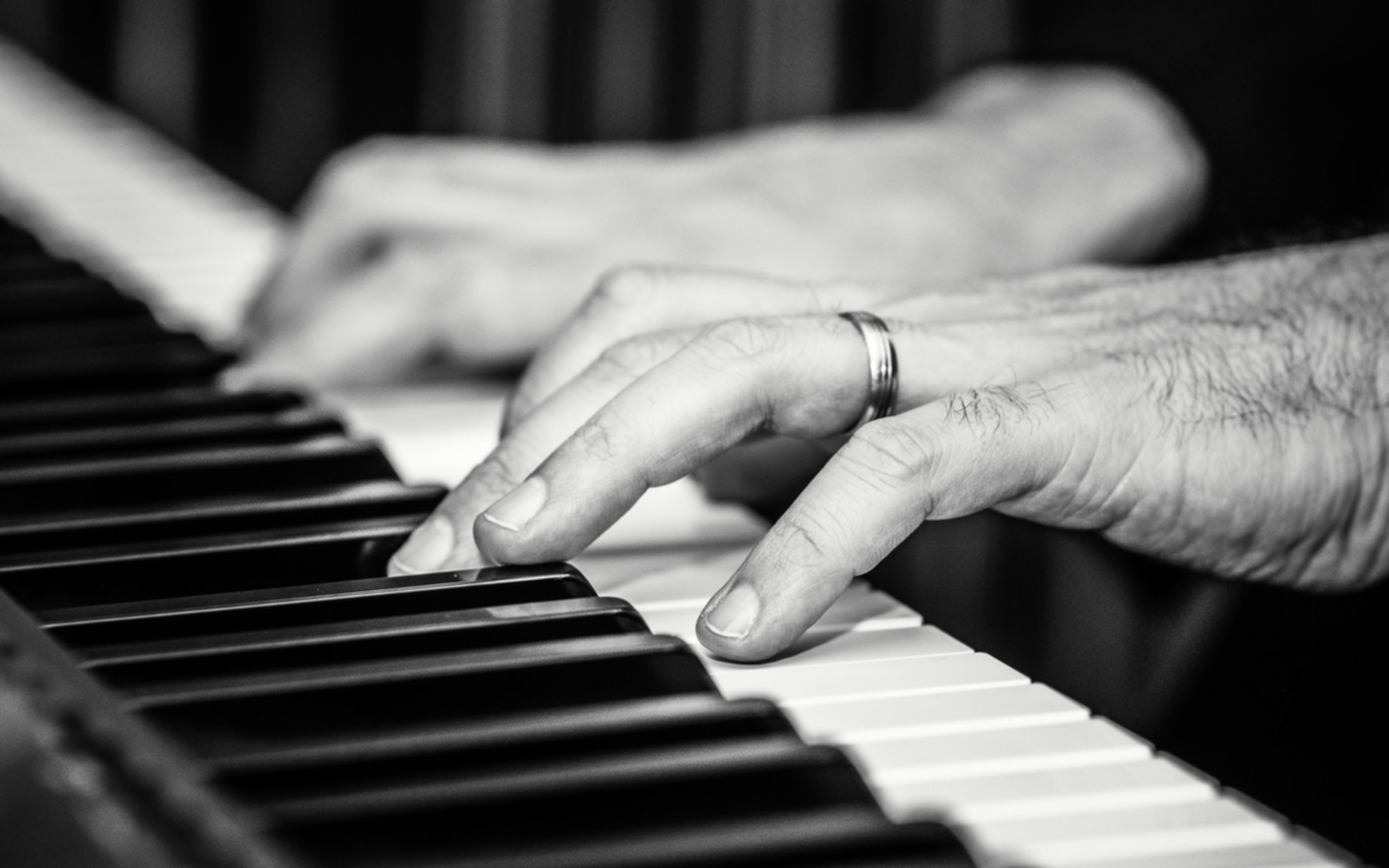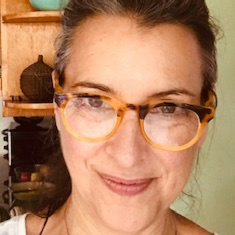Death Casserole
Christina Robertson
Taster’s Choice is the coffee at hand. She had died suddenly in the night so there wasn’t time to shop. I am standing at the cusp of her tiny kitchen where the avocado green carpet has always rippled against an ill-fitted, aluminum doorjamb. Around the sink and refrigerator, yellow plastic wall tiles are grimy with nicotine and cooking splatters, having had no time to clean them with ammonia in her rubber gloves as she always did when company was coming. Unintentional, poignant, like catching someone in their underwear. The smell of the apartment is old and yet unchanged. Forty years of cigarettes, dusty plush carpet, typewriter ribbon ink, and dish soap. The vaguely sour, human scent of lived in furniture. It was all as if I had just been here yesterday, sprawled on the couch.
***
This day has been long, starting while the moon was still on watch. Ironically, it also feels just like a bullet, hurtling past my whole lifetime with blinding speed. Now evening is setting in, and with it comes the certainty that this is not a dream. Were it a dream, there wouldn’t have to be a rational core. There would be fluctuation, fluidity, not this permanent, abrupt cutting off, this hard accounting. So I am marooned in reality. I watch my sister cry, swipe a hand across her face, then offer tea to our cousin whom we have never liked, but nonetheless is here.
Outside, the robins are singing into the cold April sunset, their elegant promises echoing off other buildings in our complex, the place where we grew up. I draw in breath but feel my lungs have knotted. She was just here, living, being her, yet tonight our mother has gone, died, retreated inside us, transformed into a thought, a wish. Everything else is suspended in animation.
In the kitchen Aunt Diana and her partner Arletta keep an eye on the old percolator and attempt to slice up a frozen coffee cake. The word has spread and people are arriving, other people, not family. Someone hands over a large casserole wrapped in plastic, someone else a plate of assorted cold cuts; death dinners. The people’s voices are low, faces hold troubled expressions, brows arched in disbelief. Perhaps everyone feels as I do, dismembered. We are trying to do something but finding we are incompetent and too late.
My sister and I spent the morning hours in silent shock, holding Dad. His hands, usually lively and warm, felt cool, papery, the hands of one drained of a reason to go on. He is lying down now, his eyes sealed against this new loneliness. Arletta takes the casserole and the neighbor who brought it turns to hug me. I can’t think of her name. I can only think that I am wearing overalls. When the phone rang in the shadowy silence this morning my adrenaline became a runaway train, but my thought process was slow, submerged in the thickness of sleep and denial. I’d just put on the thing closest to my bed, what was at the top of my clean laundry basket, and now all I can think of is how inexcusable it is to be so inappropriately dressed. I manage to thank the neighbor for coming, putting the words together on my tongue the same rote way I might tie a shoe.
The tone here is of shock, effort to understand. There are a dozen people in the front room now, but there are frequent lulls in conversation, silences, each trying to identify their place in this event while being hopelessly out of sync with it. She had never done anything thoughtlessly, without consideration for others, without preparation. But here she had died, leaving her friends to wonder if they had, in fact, missed something, comparing observations of my mother and coming up with nothing.
“I talked to her yesterday afternoon.”
“Yes, we had coffee and she was fine, railing against Trump, as usual. I would never have thought…”
“She was so passionate about things.”
“Maybe it was all his goddamned inane tweeting that finally killed her…” Weak smiles forgive my uncle’s ill-timed humor.
“I just can’t…it doesn’t seem possible.”
“Poor Maggie.”
***
My mother wouldn’t have minded how everyone piled their purses and bags on the old piano bench, but would have preferred someone sit and play…even now, maybe especially now that she’d passed away in the night. She wouldn’t miss a note of the piece either, even as she would be fumbling, herself, through the efficiency sized refrigerator to make room for a death casserole. Though there isn’t enough room, no matter which way she would have tried to fit it in, she would have persevered. Incapacity would not be an option.
She would, no doubt, be dismayed at my paltry effort at participating. She would have trouble comprehending my lack of tears, of words, of effort, of decorum; after all, in her rule book I am still a host.
Mine is a kind of grief that thrashes about internally. She would have unleashed furious tears, yes, then gathered up and committed herself to the comforting of others, exercising politeness, behavior she was taught as a child in an attempt to assimilate, rise above her family’s Greek island village heritage and its unnerving practice of keening and wailing and fainting. She would spend time beside each stricken visitor sitting on the matching chintz sofa and loveseat, as that is what is reasonable, thoughtful, useful. She would not stand apart. She would not have to struggle for even the simplest words as I am. I can just see her consoling, offering instant coffee or aspirin, or iced oatmeal cookies she’d bought from the dollar bin at Albertsons, if that’s all she had—and they were mostly all she ever had. I can feel her trying, grim but purposeful, to carry off what she’d learned is an evolved response, remaining upright, improvising her tools if necessary. Even in this sharp hour her presence feels big and round and soft.
My sister leaves the circle to check on Dad. Thinking of him tightens my chest. I don’t want to, but I imagine him in that dim little bedroom, laying on their thin husk of a mattress. He’s not good at suffering, despite having coped with more than his share during the span of his turbulent life, an artist’s life. Our mother always occupied the spaces in him that had been beaten down or worn away. Now he is left with holes. Maybe that was why he felt so cold. There was a draft blowing through him.
There is an undercurrent of sound, slow tires crunching against gravel, and my eyes drift to the kitchen windows. The alley below is still unfinished, though paving began a decade ago. Someone out there is going about their evening, one like any other for them, pulling out into the street, maybe going out to dinner. The budding crown of the huge elm at the corner looks the same too, as it always has, silhouetted against the sky’s last glow. And I imagine the dumpster down below, is, as always, overflowing. Life outside is enviably untouched by the machinations of our grief.
In a stolen moment, I recall that dumpster; when the raucous boys who lived downstairs hoisted me into it to retrieve our ball and I saw a dead cat, its tiny teeth bared. It is the alley where those boys taught me to play running bases and I got good at it. Later on, it was where I had my first kiss, on a snowy December night, shy and shivering inside a rusty old VW wagon with a broken heater that, when running, leaked gas fumes through the floor board.
I always knew that upstairs Mom was washing dishes, reading the newspaper, cutting a pattern for a new skirt, or typing at her table in the corner, astonishingly disorganized piles of research material eating up all other available space, her chapters laid neatly along the seat cushions of the sofa bed in the same room. Meals were barely a consideration when she was working on something. She’d likely have popped in a frozen pot pie for us. If we were lucky she’d remember to take the thing out before the crust had gone ashy.
My sister returns. “He’s…” She is shaking her head. “He wants to stay in their room.”
“Let him be,” I say. “Let him do what he has to do.”
I understand. It’s not avoidance, it’s something more organic. Grieving is like giving birth. It happens in waves rather than stages, through pain and pause and protraction and is without comprehensible language. No one, I would think, would wish to lay open their tortured loins, their vulnerability and raw emotion, before a room of bewildered people bearing casseroles and fruit salad. For my part, I’d like to run. I’d like to force the air of the living inside me, to walk until my body is prepared for this, until the suddenness gestates into acceptance.
Aunt Diana is wrestling with the casserole. She and Arletta strategize, removing items from the little refrigerator and stacking them outside on the back stairs, determined to find a way. They pause to contemplate a bottle of mint flavored cod liver oil, a relic of his childhood my father still swears by, and tossed it out, its freshness date having long ago expired. But losing these small items is not enough. In an abbreviated fridge in an abbreviated kitchen, the dimensions of the casserole are daunting. Diana, stoic so far today, bursts into frustrated sobs. Arletta holds her. I watch, useless, trying not to let the weight of Mom’s presence, the body of her loss, crush me. I breathe in, finding the dusty smell is almost sharp now. I swallow it down and it’s like accidentally swallowing a piece of hard candy. It hurts, and tastes like my past. I know she would have wanted to vacuum before everyone came, but in my heart I’m glad she didn’t.
Finally, the only possible decision is made: bake the casserole and serve it; it had to be eaten. Wiping her nose on a dish towel, Diana puts on glasses and meddles with the ancient oven. They have to light the pilot with a match. They both startle a bit when it catches. They have much newer appliances, a much prettier kitchen. Our ignition sounds like a clubbing over the head. I grew up afraid of it and am afraid of it still.
More people are arriving. More footsteps making their way up the stairs, murmuring, nose blowing. More pained, ragged breaths and whispers. More food. More black coffee. So much repetition, We’re so sorry… I’m so sorry… So sorry… So very sorry…. Our visitors seem to me to coalesce into a helpless, pathetic brood like nervous mice huddling in a hole. I hear people tsking, speaking softly about her, about me. I wish to God I could leave, shed my skin and slip away to wander the neighborhood and listen to the robins and distant airplanes and cars speeding somewhere else, and let my nose and the tips of my fingers get so cold they sting, stiffen, feel real.
The air in here is warm, heavy, pregnant. I know this aroma, by God. Turkey Tetrazzini. My mother attempted it from time to time when we were kids. Never having been taught to cook, having been the one in her fatherless family to hold down multiple jobs to support younger siblings, real attempts at a recipe were important events. The occasions were met with good natured, if feigned, gratitude—and apprehension. It was usually dangerously overcooked on top, and gooey, or worse, soupy inside. Still, she’d present it to the table proudly. We’d eat it as if she was not an awful cook, as if it was not from steps listed on the back of a Campbell’s can. Shriveled noodles melded to the sides of the baking dish. When pried off they looked like dehydrated worms my sister and I would sometimes find on the sidewalk and kick at each other. The pan would need to soak for two days to get the rest loose and my father would finally take steel wool to it while she went back to her writing, satisfied that she’d fulfilled her role as Mother while thriftily raising the culinary bar.
I hear the familiar drawers stick before they open, plates begin to clatter and silverware to ching. I am handed everything to put out on the sideboard for our guests. I accept mechanically, fighting the pull of olfactory memory, sweet and sad.
When Arletta begins serving out slices, I have to decline, nor can I watch as the others fork the taupe colored mess into their mouths, committed to eating it, hungry or not. There is something torturous about this, like the warped repetition of a tune played while you wait on the phone. And yet, it can’t be denied, there is a touching allegiance on display, as if they are all devouring evidence against an accused friend.
Moving several purses to the floor, I sit away from everyone on the edge of the piano bench. One of the tiny knobs used to lift and lower the fallboard is missing. The loose one I used to spin whenever I was sitting, looking over new music. Removing a few more purses, I slide in. The old solid upright seems to sigh, evoking strong memories in its vaguely rancid aroma, eons of layers of lemon furniture polish I associate with chores and childhood piano lessons and uncomfortable performances for company. I remember how, beneath my nice dress, my bare thighs stuck to the bench and sometimes got numb. I remember sitting knee to knee with Barry Stern, my teacher’s prodigy student, playing duets and feeling embarrassed because I knew he would follow our piece with something far more difficult and impressive, something my mother would whisper her praise of.
How much Mom loved to hear people play the piano! She owned stacks of records; Rubenstein, Horowitz, Van Cliburn, Gould, and she’d listen as though she hadn’t been a struggling writer, a perpetual stenography temp, but as if she’d known these men personally, like they had all attended the consummate musical conservatory—together. While working on her writing, she’d turn up the volume to drown out the sound of the garbage truck out back or the arguing couple across the hall. And when the record player was off, the little kitchen radio was always on, tuned to the classical station. Its tinny crescendos caused her to pause whatever she was doing and gaze forward into a place we didn’t know about, but where, in another form, she lived. She listened intently to my practices, trying to help me get to that place, too. How I hated that, wanting my separation from her, playing with abandon only when I was left at home alone. Stumbles, inaccuracies, perfect form, none of it mattered then. I was free to stampede the keys and make them weep at my feet. I needed no guide. I took myself to that place. My performances then might not have earned a plastic bust of Mozart or Haydn from my teacher, but I played better out of raw desire, my invisible audience enraptured.
Sitting here, it is hard for me to discern truth; whether or not Mom is actually gone. The paramedics carried her neatly assembled, sheeted form out at the blue hour before dawn. But, somehow she seems to be everywhere: in every smudge and stitch of this place, in every crease of the sofa, between every page lying on her desk, in the sound of water running in the kitchen sink, in the smell of the piano and the stale cookies, in my ear admonishing me for how I’d dressed, urging me to do right, to take care of our sad guests, no matter how little there is to offer them.
Cigarette smoke precedes Dad. Shaking visibly, he appears, a wavering apparition in the shadows of the hallway. My sister leaps up to steady him, help him face the grieving family. I fight the urge to rescue, to haul him out of here to the corner diner, just him and me, eating grilled cheese sandwiches and silently, reverently reliving the bright, unusual patchwork of her life before we have to let go. I want to save him from having to feel the way I did at my piano recitals. I never understood why there was only one way to play a piece of music and that way was indelible, correct. That strict definition was probably what led me to panic and freeze on stage during one recital, blanking in the middle of my best Brahms. Now I wonder why…how it can be that there is a correct way to suffer.
My father lowers his head again. I can feel his resistance in my gut. I’m sure he wishes to turn back the clock and make all these people go away. He’d love to blink and be returned to the routine of long ago Sundays, of napping over books, the muffled warble of an opera on the kitchen radio and tapping of a typewriter in the next room, the silliness of young daughters playing.
I can’t save him from the obligation that forces him from the womb of their bed into the cramped hallway. Despite his reluctance, his instinctive need for privacy, he will be delivered into the world of well-intentioned people who whisper and bring casseroles and go over and over what happened. His bloodshot eyes look at me almost apologetically. I feel angry for him, desperate to emancipate him, all of us. I stretch my fingers and hover over the keys.
My hands have grown tight from years at a computer. Opening them up is liberating, like coming up from under water. I realize in an instant that I have allowed myself to disappear in service to a soulless machine and wonder at how insidious that transformation was. My palms expand and fingers awaken touching the old, dormant upright. These keys will not click monotonously. They are not hollow plastic. They are substantial, cool and smooth and strong as bone. They reek history, their surfaces worn down, edges chipped. I feel an intermezzo coming back to me. I press a few keys, begin softly, and, squaring myself on the bench, am swept into it. Our piano is terrible, sour and pathetically out of key. Some notes grimace, others echo, one barely registers. The heart of the piece comes through despite this, dragging a lame leg, but other parts having vigor. I make a lot of mistakes, yet know this time I will be forgiven.
I have no doubt I have startled everyone. If I turn around I’d catch them rifling through the pages of decorum for direction on how to react. I hope they will do their best to accommodate me, as they are doing their best with what has been served them. With luck they might even recognize what it is I am reaching for, and that I am sharing it, the best of her, what was at the center, what lifted my mother up. And for a moment it might lift them up.
I deliver the last notes and land awkwardly to a few tentative applauses. Someone hesitates then says “very nice.” As my emotions begin to plummet, a softness sets down, birdlike, beside me: my hollowed out father. Weightless, with hair pillow-flat against his head, he is trembling and his smile is the saddest I’ve ever seen. Both of us study the smudgy old piano, our backs to everyone and their scraping forks and gloomy murmurings. I know he is searching each nick and chip in the instrument for my mother. She isn’t absent, but still. He begs off Arletta’s offering of casserole. Instead, he puts his papery hand upon mine and lifts my fingers to the keys again. I swallow down everything that is bittersweet, a whole lifetime, reach up to loosen the straps on my overalls, then breathe and launch into another piece where, together, inside of it, we might yet find her.
 Christina Robertson is the wife of a restaurateur, and mother of a teen who loves bad jokes, Latin poetry, and Fred Astaire. She has an MA in Clinical Counseling and devoted years to the professional examination of Nature’s terrible beauty as it exists within people. Christina’s work has appeared in The Bellevue Literary Review, Midwestern Gothic, Ponder Review, Spider Magazine, and in the fiction anthology, Eclectically Heroic, among others. She lives and writes in Evanston Illinois.
Christina Robertson is the wife of a restaurateur, and mother of a teen who loves bad jokes, Latin poetry, and Fred Astaire. She has an MA in Clinical Counseling and devoted years to the professional examination of Nature’s terrible beauty as it exists within people. Christina’s work has appeared in The Bellevue Literary Review, Midwestern Gothic, Ponder Review, Spider Magazine, and in the fiction anthology, Eclectically Heroic, among others. She lives and writes in Evanston Illinois.
Featured Image: “Sinnliche Töne [Explored]” provided by Tekke (licensed under CC BY ND 2.0).


Marlene Schwartz
May 7, 2019 at 10:54 amA beautiful essay on loss and the emotions that follow